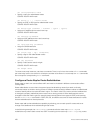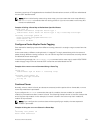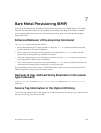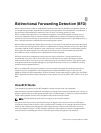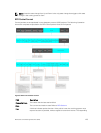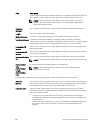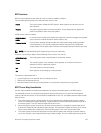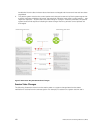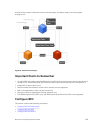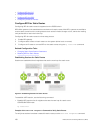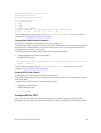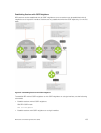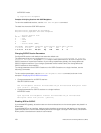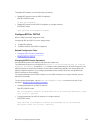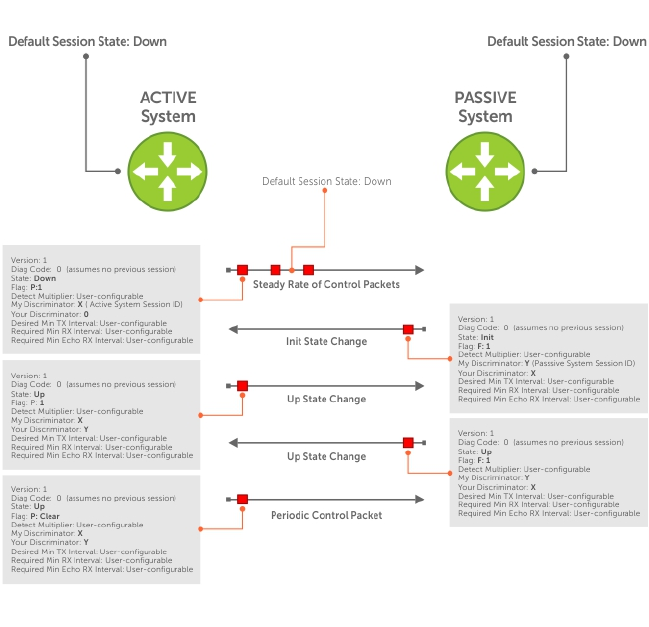
handshake. Now the discriminator values have been exchanged and the transmit intervals have been
negotiated.
4. The passive system receives the control packet and changes its state to Up. Both systems agree that
a session has been established. However, because both members must send a control packet — that
requires a response — anytime there is a state change or change in a session parameter, the passive
system sends a final response indicating the state change. After this, periodic control packets are
exchanged.
Figure 9. BFD Three-Way Handshake State Changes
Session State Changes
The following illustration shows how the session state on a system changes based on the status
notification it receives from the remote system. For example, if a session on a system is down and it
128
Bidirectional Forwarding Detection (BFD)



